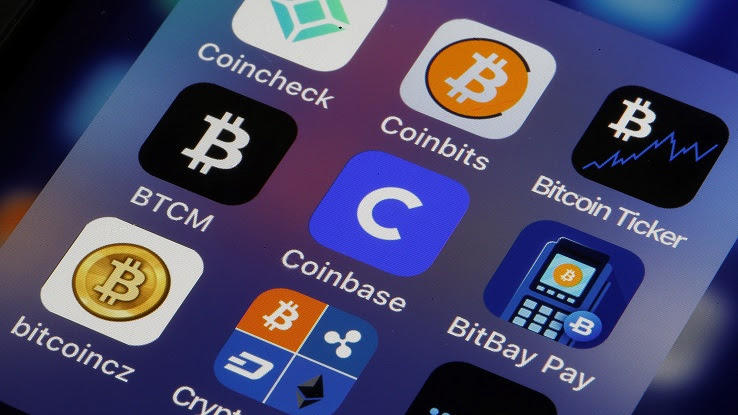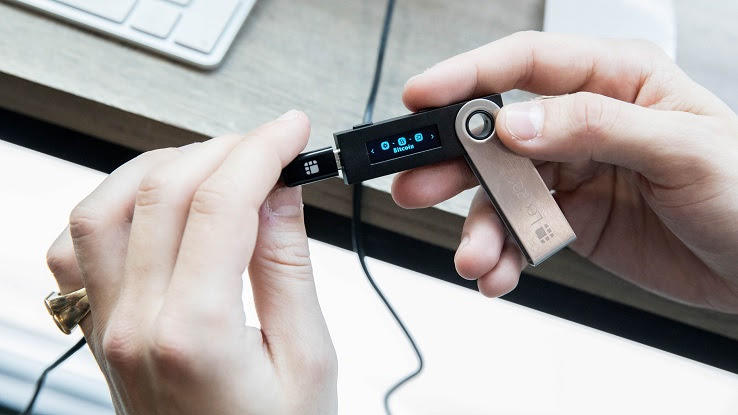
Crypto wallets are your key to the cryptocurrency market. These wallets are what store the public and private keys you need to buy, sell, manage and exchange cryptocurrency across worldwide markets. They largely have the same function, but they differ in a variety of key ways — and you’ll need to know which features are right for you before you start investing in cryptocurrency.
A cryptocurrency wallet is an online program or hard drive that stores the codes you require to exchange cryptocurrency with other users and access the blockchains that record crypto transactions. When you want to sell cryptocurrency, you’ll seek out someone’s public key or cryptocurrency account and transfer the value from your wallet to theirs. If you’re buying crypto, this process works in reverse.
Regardless of the currency you’re thinking about investing in or the purchase or exchange you’re processing, these wallets are vital for engaging with the online cryptocurrency market. Here’s what you need to know to choose the wallet to suit your needs.
Types of Crypto Wallets

There are two types of cryptocurrency wallets: “hot” wallets, which keep your information accessible online, and “cold” wallets, which store your keys offline. These wallets are available in a variety of formats.
Online Wallets
Online wallets, which are always “hot” or online, function within a cloud-storage-like system, allowing you to access your cryptocurrency account from within your web browser. These web wallets are managed by third-party companies that store your private keys within their databases. When you have an online wallet, you can access your cryptocurrency and engage in buying or selling cryptocurrency anywhere you have a digital device and internet access. However, because these wallets are stored online, they’re more susceptible to security attacks.
One of the most popular online wallets is Kraken. It’s never had a widespread hack or a loss of funds, and it supports storage of a large number of common cryptocurrencies (50+). This wallet also allows you to view crypto stats, including the market cap and the 24-hour percentage change in the prices of cryptocurrencies. Transaction fees are low, typically sitting between 0.9% and 1.5% for crypto and at 3.75% for debit or credit card purchases.
Mobile Wallets
Like online wallets, mobile wallets are fully online, but they allow you to utilize their software through downloadable smartphone apps. These convenient wallets not only let you manage your cryptocurrency on the go but also let you make in-person purchases at establishments that take cryptocurrency as payment. Unfortunately, because smartphones can be stolen rather easily, mobile wallets pose a higher security risk than other online wallets. You definitely don’t want to store all of your crypto value in a mobile wallet.
Coinbase is a popular mobile crypto wallet that allows you to access your funds both within a browser and download your wallet as an iOS or Android app. Coinbase’s easy-to-use interface makes trading, buying and selling a large array of cryptocurrencies possible. Additionally, the app allows you to engage with decentralized applications and take part in initial coin offerings (ICOs) to fund cryptocurrency projects. It also offers extra security measures, including two-factor authentication, cloud backups and recovery phrases for lost wallets. Coinbase charges a flat fee for most transactions.
Desktop Wallets
Desktop wallets are software programs that — instead of accessing via your internet browser or an app — you download directly to and run directly on your computer. These types of wallets are accessible only on the original desktop that you download them on, making them a fairly secure option. You can also use them as both “hot” and “cold” wallets, depending on your internet connectivity. The ability to take them offline can help prevent intrusion from viruses, malware and hacking. If you’re a regular cryptocurrency trader, though, you may not be a fan of desktop wallets; they’re far less convenient than mobile and online wallets.
Exodus is one of the more versatile desktop wallets due to its built-in exchange system. The wallet allows you to store a larger range of cryptocurrencies, including less common cryptocurrencies such as Chillz and Monero. It’s also free to download, though you’ll need to pay market transaction fees. If you’re solely interested in storing or exchanging Bitcoin, Electrum is a Bitcoin-only desktop wallet with impressive safety features and a good reputation within the cryptocurrency community. Wasabi Wallet is another strong desktop choice with features similar to Electrum’s.
Hardware Wallets
Hardware wallets are categorized as “cold” wallets. These wallets are stored on USB drives or hard disks that aren’t connected to online or desktop programs. While you can still engage in online exchanges, the information within hardware wallets is stored offline, adding an extra layer of security to your crypto account. Most hardware wallets also require you to enter a passcode before you can access your stored keys. The downside to hardware wallets is their upfront cost, which may be around $150 (compared to the $10 or so that many online wallets charge for startup).
Trezor and Ledger are two top hardware wallets. Trezor is widely trusted, and its simple interface and robust security features make it a top pick for hardware wallet users. Its pro models incorporate additional coin storage, more engaging interfaces and other advanced features. Ledger provides similar perks: a strong interface, a trusted system and great security. The Ledger Nano S is an entry-level wallet that comes with the company’s most basic lineup of security and exchange features. The Ledger Nano X features Bluetooth, a larger storage capacity (1,800+ tokens and 100+ apps), and connectivity with the Ledger Live App, combining security with convenience.
Paper Wallets
Paper wallets, as their name suggests, require you to print out your public and private keys in order to store them in a secure location offline. The keys are printed as QR codes. When you want to access and manage your crypto, you simply need to scan the codes with your mobile device. This is perhaps the most secure option, as long as you store your printed keys in a safe spot that other people can’t access. When using paper wallets, you’ll want to take extra measures to get the most out of the added security, including wiping your computer history after generating new keys.
How Do You Choose the Right Crypto Wallet?

Choosing the best crypto wallet for you comes down to your intentions with cryptocurrency. Do you plan on saving your cryptocurrency or spending it? For example, if you don’t need as much “liquidity” and are planning on holding onto your funds for a while, a paper option may be easier for you to use than it would be if you were planning on trading frequently and could benefit from online connectivity. Are you investing for fun or are you looking to cultivate your investment into a larger store of funds? Are you someone who’s more concerned with security or convenience?
If you’re convenience-oriented, you likely won’t be satisfied with “cold” wallets. But, on the other hand, if you’re concerned about the possibility of getting hacked (or have a larger savings of cryptocurrency to lose) you might opt to avoid “hot” wallets. Before investing in a crypto wallet, it’s vital to read user reviews and research security features carefully. These details can better prepare you for making the most of your wallet — and keeping your investment safe.





